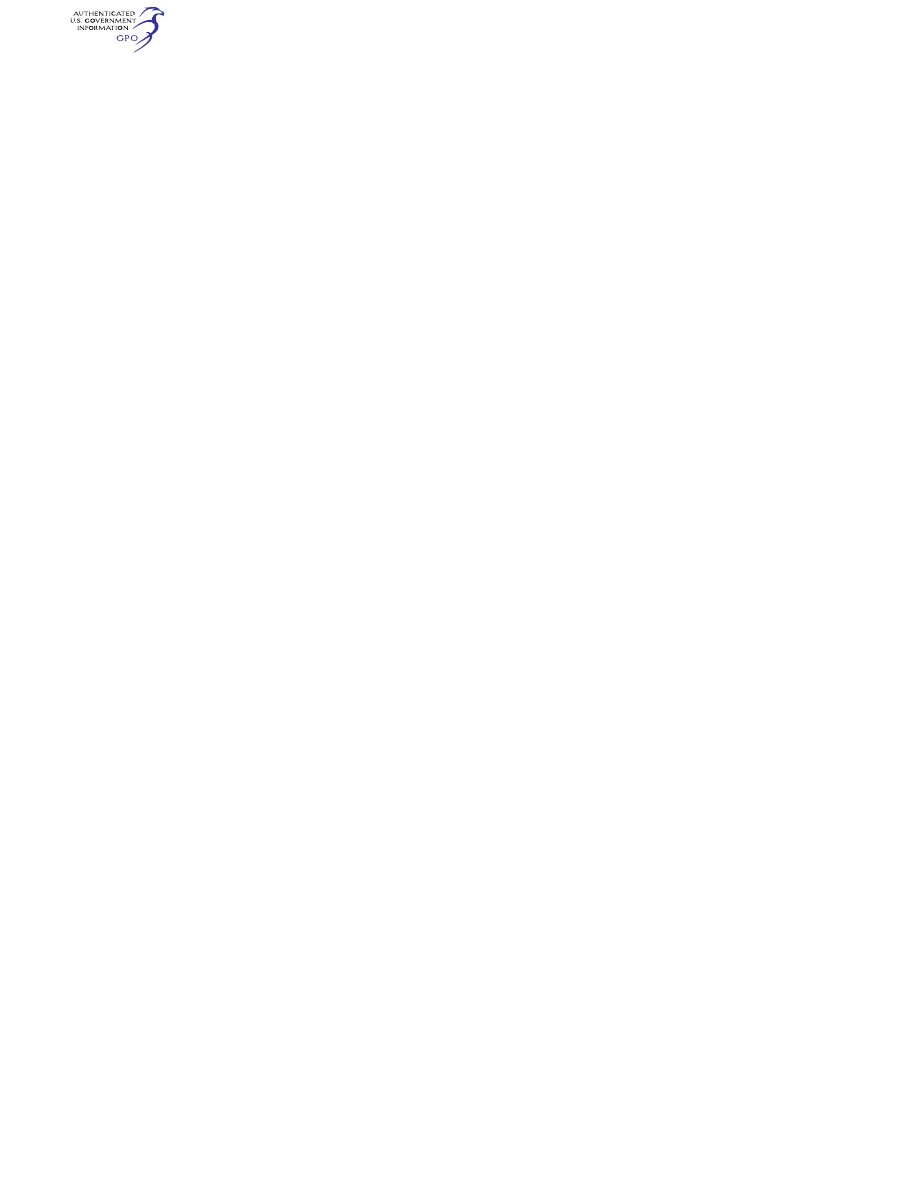
627
Federal Aviation Administration, DOT
§ 29.923
fan blades are not operating at reso-
nant conditions within the operating
limits of the rotorcraft.
(Secs. 313(a), 601, and 603, 72 Stat. 752, 775, 49
U.S.C. 1354(a), 1421, and 1423; sec. 6(c), 49
U.S.C. 1655 (c))
[Amdt. 29–13, 42 FR 15046, Mar. 17, 1977, as
amended by Amdt. 29–26, 53 FR 34215, Sept. 2,
1988]
R
OTOR
D
RIVE
S
YSTEM
§ 29.917
Design.
(a)
General. The rotor drive system
includes any part necessary to trans-
mit power from the engines to the
rotor hubs. This includes gear boxes,
shafting, universal joints, couplings,
rotor brake assemblies, clutches, sup-
porting bearings for shafting, any at-
tendant accessory pads or drives, and
any cooling fans that are a part of, at-
tached to, or mounted on the rotor
drive system.
(b)
Design assessment. A design assess-
ment must be performed to ensure that
the rotor drive system functions safely
over the full range of conditions for
which certification is sought. The de-
sign assessment must include a de-
tailed failure analysis to identify all
failures that will prevent continued
safe flight or safe landing and must
identify the means to minimize the
likelihood of their occurrence.
(c)
Arrangement. Rotor drive systems
must be arranged as follows:
(1) Each rotor drive system of multi-
engine rotorcraft must be arranged so
that each rotor necessary for operation
and control will continue to be driven
by the remaining engines if any engine
fails.
(2) For single-engine rotorcraft, each
rotor drive system must be so arranged
that each rotor necessary for control in
autorotation will continue to be driven
by the main rotors after disengage-
ment of the engine from the main and
auxiliary rotors.
(3) Each rotor drive system must in-
corporate a unit for each engine to
automatically disengage that engine
from the main and auxiliary rotors if
that engine fails.
(4) If a torque limiting device is used
in the rotor drive system, it must be
located so as to allow continued con-
trol of the rotorcraft when the device
is operating.
(5) If the rotors must be phased for
intermeshing, each system must pro-
vide constant and positive phase rela-
tionship under any operating condi-
tion.
(6) If a rotor dephasing device is in-
corporated, there must be means to
keep the rotors locked in proper phase
before operation.
[Doc. No. 5084, 29 FR 16150, Dec. 3, 1964, as
amended by Amdt. 29–12, 41 FR 55472, Dec. 20,
1976; Amdt. 29–40, 61 FR 21908, May 10, 1996]
§ 29.921
Rotor brake.
If there is a means to control the ro-
tation of the rotor drive system inde-
pendently of the engine, any limita-
tions on the use of that means must be
specified, and the control for that
means must be guarded to prevent in-
advertent operation.
§ 29.923
Rotor drive system and con-
trol mechanism tests.
(a)
Endurance tests, general. Each
rotor drive system and rotor control
mechanism must be tested, as pre-
scribed in paragraphs (b) through (n)
and (p) of this section, for at least 200
hours plus the time required to meet
the requirements of paragraphs (b)(2),
(b)(3), and (k) of this section. These
tests must be conducted as follows:
(1) Ten-hour test cycles must be used,
except that the test cycle must be ex-
tended to include the OEI test of para-
graphs (b)(2) and (k), of this section if
OEI ratings are requested.
(2) The tests must be conducted on
the rotorcraft.
(3) The test torque and rotational
speed must be—
(i) Determined by the powerplant
limitations; and
(ii) Absorbed by the rotors to be ap-
proved for the rotorcraft.
(b)
Endurance tests; takeoff run. The
takeoff run must be conducted as fol-
lows:
(1) Except as prescribed in para-
graphs (b)(2) and (b)(3) of this section,
the takeoff torque run must consist of
1 hour of alternate runs of 5 minutes at
takeoff torque and the maximum speed
for use with takeoff torque, and 5 min-
utes at as low an engine idle speed as
VerDate Sep<11>2014
09:06 Jun 28, 2024
Jkt 262046
PO 00000
Frm 00637
Fmt 8010
Sfmt 8010
Y:\SGML\262046.XXX
262046
jspears on DSK121TN23PROD with CFR